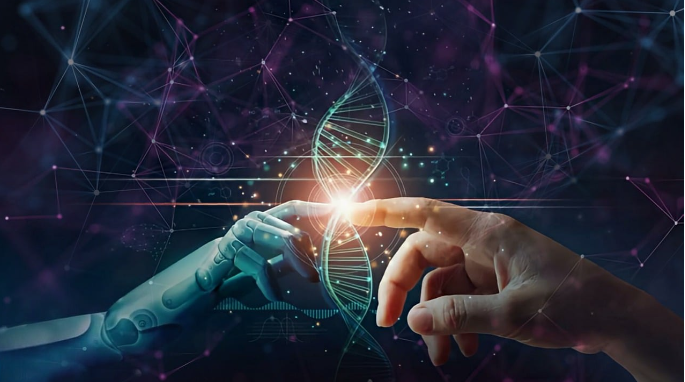In the past few years, artificial intelligence (AI) and machine learning (ML) have been introduced in medical devices.
The field of healthcare has seen an enormous breakthrough. The Federal Drug Administration (FDA) approved the first AI-powered medical gadget meant to help diagnose colonic polyps, which are precursors to colon cancer.
This ground-breaking breakthrough has paved the way for improved diagnostic skills and the potential to save lives. As a technology enthusiast and early user, Toufic Kachaamy, Medical Director of Gastroenterology, Cancer Treatment Centers of America has constantly watched the growth of AI in polyp detection, and its abilities has been beyond his expectations as he explains in his article for Healthcare Business Review.
The FDA’s regulatory framework, the expanding effect of AI and ML in gastroenterology, and the revolutionary potential of these technologies in the medical sector are all discussed in this article.
Regulatory Advances: FDA’s Role
In April 2019, the FDA published the “Proposed Regulatory Framework for Modifications to Artificial Intelligence/Machine Learning (AI/ML)-Based Software as a Medical Device (SaMD) – Discussion Paper and Request for Feedback.” This document initiated a dialogue with industry experts and stakeholders to establish guidelines for regulating AI and ML in medical devices.
After thoroughly considering numerous comments and feedback, the FDA released the “Artificial Intelligence/Machine Learning Software as a Medical Device (SaMD) Action Plan” in January 2021. This action plan outlined a comprehensive framework that enabled modifications to AI algorithms, allowing them to learn from real-life experiences and improve over time.
Presently, the FDA has listed 343 AI-ML-enabled medical devices, indicating the beginning stage of this field.
AI and ML in Gastroenterology: Advancing Detection and Prevention
In gastroenterology, AI has already shown the potential to improve clinicians’ capacity to detect colonic polyps, lowering cancer risk. AI can effectively determine the kind of polyp and give helpful information on which ones require excision and which may be safely left alone by developing advanced algorithms.
This strategy improves colonoscopy safety and decreases needless resections and subsequent tissue analysis, potentially cutting expenses.
Expanding Applications: AI’s Role Beyond Gastroenterology
The application of AI and ML in healthcare extends beyond gastroenterology. Deep learning algorithms have shown promising results in identifying invisible patterns to human observers. For instance, AI can locate the precursor of pancreatic cancer from specific tests, enabling early detection and intervention.
Similarly, using convolutional neural networks in analyzing 12-lead electrocardiograms has allowed AI models to detect the presence and severity of liver disease, even though this cardiac test was not initially designed for such purposes.
Early identification of liver disease and other conditions can revolutionize patient outcomes by enabling timely interventions and altering the natural progression of diseases. The advent of AI and ML in software as a medical device offers a glimmer of hope for healthcare professionals burdened by administrative tasks.
The increasing adoption of electronic medical records and the growing sophistication of healthcare technologies have inadvertently led to a decrease in the amount of time physicians and nurses spend at the bedside.
However, with the integration of AI-powered solutions, healthcare providers can delegate data analysis tasks to machines, allowing them to focus more on the human aspects of medicine.
This technological shift is expected to restore the personalized touch to medical care, fostering deeper connections between caregivers and patients. We stand at the precipice of a new era in healthcare, driven by the integration of AI and ML in software as medical devices.
The FDA’s progressive regulatory framework has laid the foundation for safe and effective use of these technologies.
In gastroenterology and other medical specialties, AI and ML have already exhibited their potential to enhance diagnostics, improve patient outcomes, and reduce costs.
As we move forward, it is crucial to continue refining these technologies, striking a balance between human expertise and the capabilities of AI. By leveraging AI and ML, healthcare professionals can reclaim their time, refocusing on providing compassionate care while embracing the power of technology to shape the future of medicine.
Recent News

November 07, 2023
UT Arlington’s Smart Hospital: Innovations and Advancements
The University of Texas at Arlington (UT Arlington) innovative hospital has […]
Read More
October 22, 2023
Healthcare’s 2023 Dilemma: Staffing Gaps
The healthcare sector in the US is grappling with a significant […]
Read More
